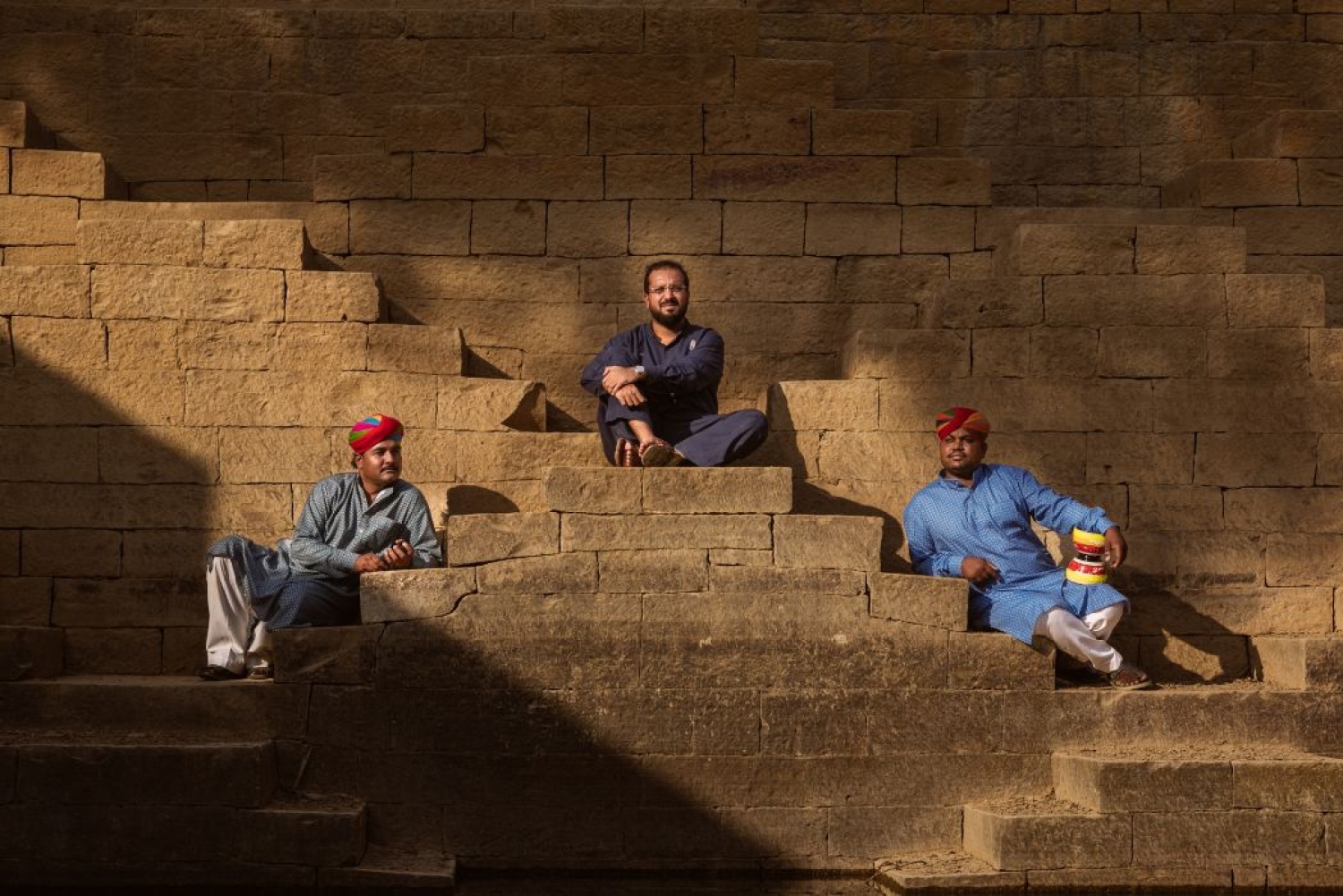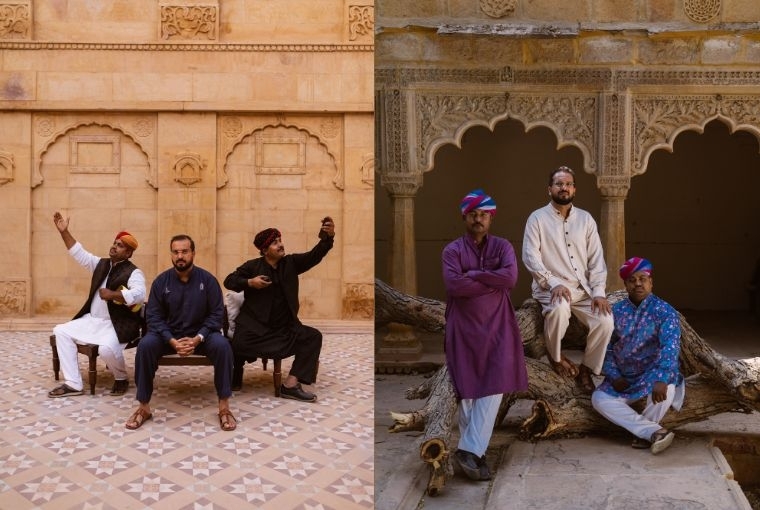
Credit Sachin Soni

Credit Sachin Soni
Indian DJ-producer Hamza Rahimtula has never been one to colour inside the genre lines. With his latest project Origins, a collaboration with the Rajasthan Folkstars, Rahimtula leads listeners into a familiar yet fresh world where the throbbing pulse of house music meets the ancient rhythms of the desert. The album has already made waves globally, even hitting No. 1 on Beatport’s Organic House chart shortly after release. Hamza is giving Indian folk music a home on the dancefloor, and in his eyes, it’s still house music through and through.
House Music Evolving
Despite the novel pairing of Rajasthani folk instruments with electronic beats, Rahimtula resists framing Origins as a mere ‘fusion’ project. 'It’s house music – full stop,' he says. Whether he uses Latin congas, African vocals, or a traditional morchang jaw harp from India, the unifying element is the classic four-on-the-floor house kick drum. House music, as Hamza emphasizes, 'is global, expansive, and inclusive.' By drawing from Rajasthan’s percussive and melodic traditions, he aimed to enrich house music’s palette, much as the genre has long embraced African and Latin influences. 'If someone wants to call it Indo House, great. If not, that’s fine too. I’m just making house music for house heads,' Rahimtula says.
Rajasthani folk music, particularly among younger audiences, has been fading from the mainstream; by presenting it through a new lens, Hamza is helping to reinvigorate and preserve it. 'We’re not altering the original tradition. We’re presenting it through a new lens,' he explains. NGOs and folk institutions have praised Origins for creating new income streams for the folk artists involved and shining a spotlight on their heritage. In other words, this creative cross-pollination isn’t seen as diluting tradition – it’s amplifying it.
The seeds of Origins were planted over ten years ago, when Rahimtula first jammed with Rajasthani musicians. That electrifying synergy of deep house beats and Rajasthani folk melodies convinced Hamza that they were on to something unique. Yet it was only in 2025, after countless shows and iterations, that they felt ready to translate those live improvisations into a cohesive recorded album.
Inside Origins: A Seamless Dialogue of Past and Present
The finished album Origins is both a tribute and a transformation, a project that, in Hamza’s words, creates 'a new space where folk authenticity and global house music meet.' It features five master Manganiyar musicians – Jaisa Khan on khartal (wooden clappers), Firoz Khan on bhapang (a single-string percussion), Bhutta Khan on vocals, Bhawru Khan on sarangi (bowed lute), and Shakoor Khan Langa on the twin-flute algoza and the jew’s harp-like morchang.
If Origins is any indication, Hamza Rahimtula’s venture into Rajasthani folk-infused house is striking a chord on dancefloors and in the music industry. The album shot to the top of the Beatport Organic House charts (and even broke into the overall Top 5 across all genres) in its first weeks, signalling that there’s a global appetite for these sounds. For Hamza, releasing Origins on Sol Selectas – a label known for championing eclectic world influences in house music – was a dream come true.
On stage, the Origins material has proven to be a two-way cultural exchange. When performing this Indo-house style in front of Indian audiences, Hamza observes a deeper emotional reaction: dancers light up with recognition when they hear a familiar folk melody or the twang of a kartal amid the beats. 'When they hear familiar folk elements on the dancefloor, it hits different,' he says of the Indian crowd’s response. There’s a pride and nostalgia intertwined with the joy of dancing – a sense that their own cultural roots are being celebrated in a modern context. Meanwhile, audiences abroad react with curiosity and excitement to these unfamiliar sounds woven into the DJ set. The contrast in reactions – deep cultural connection on one hand, fresh discovery on the other – is 'beautiful to experience,' says Rahimtula.
The ripple effects of Origins are already being felt. Whether or not 'Indo House' solidifies into a defined genre, more producers across India are now inspired to experiment in this space. 'We’ve barely scratched the surface,' Hamza insists, pointing out that India is a goldmine of tribal and folk music beyond Rajasthan, from the trance-like drumming of the Northeast to the Carnatic-influenced folk of Karnataka. There’s tremendous potential for regional sounds to find their way into electronic music. He encourages younger producers to approach such collaborations with respect and depth: study both the electronic genre and the folk tradition inside-out before attempting to merge them, he advises, because taste and cultural sensitivity are paramount. It’s not difficult to put a token flute on a generic beat and call it fusion, but to truly create something lasting, one must grasp the soul of both worlds. Done right, projects like this can uplift traditional artists and give global audiences a fresh experience.
In connecting the dunes of Rajasthan with dancefloors worldwide, he has opened a door for cross-cultural collaboration and given new life to age-old songs. With one foot in ancestral heritage and the other in the future of house music, Hamza is proving that when it comes to musical innovation, sometimes looking back is the surest way to move forward.
Words Harita Odedara
26.05.2025

Credits Sachin Soni